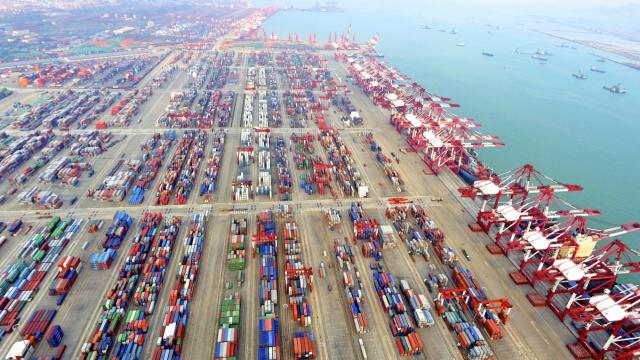
Over the past month, trade officials have been frantically working to resolve outstanding disagreements over provisions in the Trans-Pacific Partnership (TPP) in the midst of speculation that the deal is in deep trouble. At this late stage of negotiations, the U.S. Trade Representative (USTR) has pretty much abandoned all remaining pretense of transparency in its consideration of these remaining policy issues. Since the failure to conclude the deal at the meeting in Hawaii over the summer, the USTR has held several closed-door meetings between high-level officials to finalize the agreement and it is under intensifying pressure to finish it off as soon as possible.
Trade Officials Continue to Meet Secretly
In mid-August, there was a week-long meeting in Mexico to do a “legal scrub” of the TPP text, in order to have the text ready to go for an eventual signing. Toward the end of August, officials from Canada and Mexico went to Washington to continue discussions, likely around auto trade issues. And this week the USTR met with Vietnam’s National Assembly along with corporate representatives of one of several trade advisory committees, with some other meetings taking place between Japan, Canada, and Mexico, also regarding auto trade.
U.S. officials seem confident that they can conclude before the end of the year. Undoubtedly, they are under mounting pressure from the impending federal elections in Canada, Japan, and the United States’ presidential election season looming on the horizon. The Japanese trade minister claims that it will need to be concluded before the end of September, stating that otherwise it will be difficult to continue talks as Canada heads into its general election in October.
The latest reports say that the U.S. is seeking another high-level ministerial meeting in late September, on the margins of a session of the UN General Assembly meeting in New York. Though it seems slim, there is a possibility that they could announce the TPP’s conclusion at that meeting. If the USTR does, President Obama would need to give 90-days notice to Congress before he could officially sign it—a provision stipulated by the Fast Track trade legislation that passed this summer. From there, he would still need to convince Congress to actually ratify the agreement in order for it to become binding on the United States. So even if they’re able to come to full agreement on the TPP the end of this month, it’s legally impossible for them to get the ratification they need to completely finish the deal by the end of this year.
And all the while, the U.S. is still trying to convince the public of the TPP’s merits and repair the USTR’s image as being a secretive, corporate-captured agency.
USTR’s New "Chief Transparency Officer"
The USTR has appointed one of its own leading lawyers, Tim Reif, as its new chief transparency officer, a position mandated by the recent Fast Track bill. According to the USTR’s Michael Froman, his role is to make “trade negotiations more accessible and transparent to the public and their representatives in Congress.” Some lawmakers have raised concerns that this official will only act to worsen the agency’s public engagement practices with more bureaucratic obstruction. “If it desired, USTR could grant greater access immediately, without fancy titles,” said Rep. Lloyd Doggett of Texas.
We share Rep. Doggett’s skepticism, and have strong doubts that this officer will bring about meaningful reforms to the trade negotiation process—but of course, we hope to be proven wrong. At the very least, it would be a welcome change to see the USTR regularly disclose accurate, specific descriptions of its policy proposals. However, that would hardly be enough. Anything short of mandating the full publication of draft texts of the agreement following each negotiation round, providing ample opportunities for public participation into the process, and introducing transparency to how the USTR arrives at their policy priorities, would be inadequate to produce the kind democratic, public interest-driven policies we need to have in the 21st century.
Public Opposition to the TPP Still Grows
Civil society groups and advocates have meanwhile continued the fight against the TPP. In New Zealand, thousands of people went to the streets to protest the TPP, as other leading advocates have filed a legal challenge over the government’s refusal to release documents relating to the agreement. A group of Japanese health advocates, including eight lawmakers and 157 lawyers,are also suing their government, on the grounds that the deal is unconstitutional and a danger to public health. The TPP’s Copyright Trap, which is an EFF campaign to fight back against the agreement’s 20-year retroactive copyright term extension, succeeded in directing hundreds of messages to TPP negotiators to resist the United States’ copyright maximalist demands. Our U.S. action to petition the Register the Copyrights to reaffirm its commitment to balanced policy has garnered thousands of signatures.
It’s hard to tell what’s next for the agreement. We know that trade officials are determined to conclude it as soon as possible even as public opposition has grown worldwide. In the meantime the Asian TPP nations have shifted their focus to another atrocious trade deal, the Regional Comprehensive Economic Partnership (RCEP), which may contain provisions that are even worse than the TPP. The fact that RCEP contains terrible copyright rules, even though it isn’t U.S.-led (and therefore not captured by Hollywood), goes to show how opaque trade agreements are a bad way to decide digital policy, regardless of who is behind them.
As the shape of TPP’s future comes into focus, we’ll maintain a close eye on any new developments. If the USTR manages to finalize the terms of this deal, that’s when we’re going to have to do everything in our power to stop it from getting signed or ratified.
3 WAYS TO SHOW YOUR SUPPORT
- Log in to post comments
















